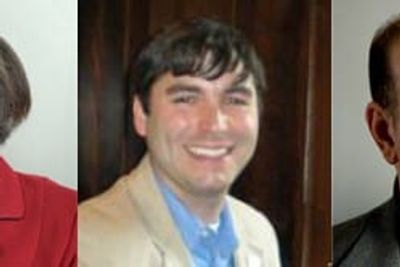As the Tennessee General Assembly reconvenes this month, the state’s LGBT political leaders say that from adoption rights to discrimination issues, there will be many bills worth watching.
Despite wins in Memphis and Nashville for the inclusion of sexual orientation and gender identity in nondiscrimination policies, the political landscape remains fairly inhospitable for many LGBT concerns. With an election looming in the fall and enormous budgetary issues that will likely dominate the session, it’s unclear what traction bills favorable to the community might gain.
“I’m happy to confirm the rumor that there will be a movement towards a nondiscrimination policy for state employees,” said H.G. Stovall, president of the Tennessee Equality Project. “That’s a big deal because the state is our largest employer, and that would be an improvement all across the state rather than the bits and pieces of equality we’re achieving in different cities.”
The legislation, which is still being crafted, has a House sponsor and should have a Senate sponsor by the opening of the session, although Stovall declined to name whom those individuals would be. And while TEP will have its annual lobbying day on March 2, he is quick to point out that the group advocates positions, not political party favoritism.
“We don’t believe in ‘us vs. them,’ and we look for support wherever we can get it,” he said. “We do occasionally make endorsements, but we’re careful with those. We really encourage people to reach out to their elected officials and let them know what’s important to them, and see where they stand on those issues.”
“There are some moderates in both parties, and we’ll be looking at how people are voting on key bills,” Sanders said. “There also are conservatives in both parties, so people need to be aware of that. We’ll be looking at candidates who support our position to see how we can be helpful, and that includes both the state legislature as well as the Metro Council, where elections aren’t until 2011 but whose members will begin fundraising in earnest this year. We want to make sure that people support the candidates who voted with us on the Metro nondiscrimination ordinance.”
“The hate-crimes bill remains our No. 1 priority,” Richmond said. “We’ve been working to build support for that across the state. We’re still educating people on the other bills, and we’re watching things like the adoption bill although we don’t think it will be moved in 2010 because of the financial costs attached to it. We think the civil unions ban will be back, but how far that goes remains to be seen.”
At the end of the day, pushing for some legislation to pass while defeating other pieces early on is tiring work, but it’s vital to advance equality and education as part of a longer-term strategy, Richmond said.
“Just having a bill like the nondiscrimination bill at the state level means that we can go to people, to talk about the issue,” she said. “It gives us a way of focusing talking points and building up support to pass it. That may not happen this year, but it’s a staring point to eventually get it passed.”
